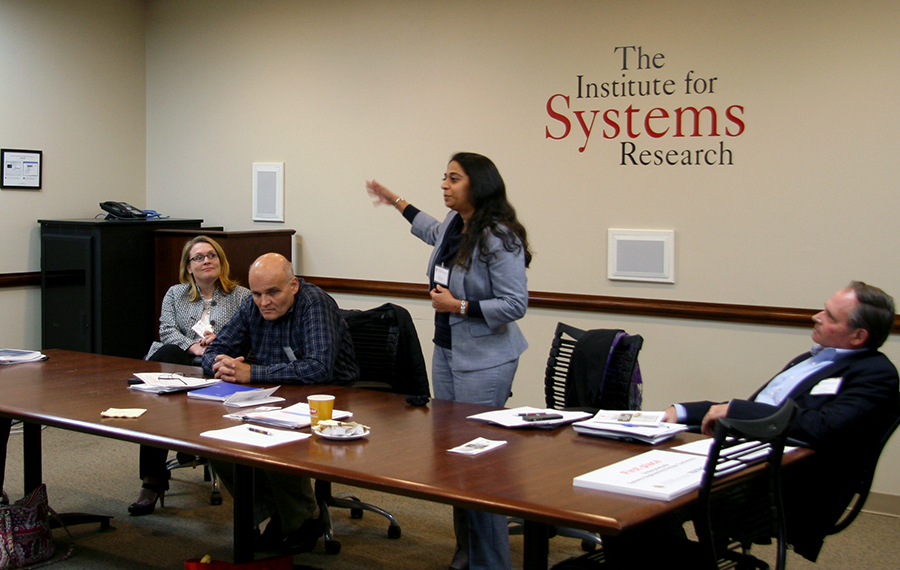What is systems engineering?
Today everyone uses many different systems in their daily lives. We fly in an airplane (a system) operated by an airline (a system) within a national airspace system which fits inside a national transportation system which integrates with other national transportation systems. We use Internet-based systems to pay our bills, order clothes, books, and groceries. We get imaged (a system) to determine our ills, and systems for delicate surgery aid surgeons to reattach retinas or repair our brains. Systems control the environment and security in our buildings, and systems help soldiers find the enemy and provide firepower on targets. Systems observe and analyze the global environment to help us survive storms, tsunamis, and earthquakes; and help determine why crops don’t grow or give guidance to farmers on how to improve their yield. Systems give us the means to vote and know the results quickly. Systems integrate seamlessly into our daily lives.
How do these systems come to be? Originally, someone created a system like the car; over time it was refined. But such systems had flaws: they failed unexpectedly, had unsafe features, and were difficult to operate and repair. Quality and performance varied from year to year.
For a time, people accepted this. But as the systems became more complex and competition heated up, system flaws turned into lost money, lives, and reputations. Consumers (whether people, organizations, or governments) demanded better from the creators of systems. Systems engineering improved the situation by establishing processes and methodologies that have helped engineers conceive and implement safe and secure systems, based on multiple technologies and engineering disciplines, which work and last as their buyers intended and allow activity to occur over and over again.
Systems engineering is not a static discipline. It evolves as we learn to improve how to get it right the first time. At the University of Maryland, we recognize the importance of systems engineering. We work at teaching you, the next generation of systems engineers (the appliers of systems engineering), to follow the principles, the state of the art methods and techniques, and understand the relationship of systems to their environments and to technology. We also teach you about the profession.
What (and who) is a systems engineer?
In a world that depends on complex technologies and a confluence of local policies and regulations and global influences, there are pressures to achieve success in service or product delivery at specific times, within specific budgets and resources, and with expected performance. This has shown leaders in government and commercial industry that they need a new breed of technical professionals—people with the attributes of a trained systems engineer.
Careers in systems engineering
Today, systems engineers are highly sought after and their unique combination of skills is widely recognized and rewarded. But don't just take our word for it:
- In 2009, Money magazine ranked Systems Engineer "the best job in America."
- In 2012, John Thomas, retired senior vice president of Booz Allen Hamilton, and president of the International Council on Systems Engineering (INCOSE), described the attributes of a credentialed systems engineer:
• Sense of empowerment
• Focus on outcome
• Collaborative
• Problem solver
• Sense of responsibility to
complete the job
• Broad and deep skills and knowledge
• Influencer
While Thomas was speaking about INCOSE certification credentials, every systems engineer strives to attain and apply these attributes. We created the University of Maryland’s Master of Science in Systems Engineering degree program to help you gain these valuable attributes.
Our relationship with INCOSE. Through ISR, the University of Maryland is a corporate member of the International Council on Systems Engineering (INCOSE) and a member of its Academic Council. ISR also sponsors the INCOSE Chesapeake Chapter. These associations help connect our MSSE program with the systems engineering profession.
How do I become a systems engineer?
Specialized graduate training is essential. More than 20 years ago, we at ISR predicted the rising value of this modern renaissance person. That's why we created and continue to enhance a curriculum that stays abreast of and anticipates society’s demands. Our Master of Science in Systems Engineering (MSSE) program helps you become a technical leader who can work with a team of multi-disciplinary professionals to address a complex problem and define and orchestrate a successful solution, system or service.



